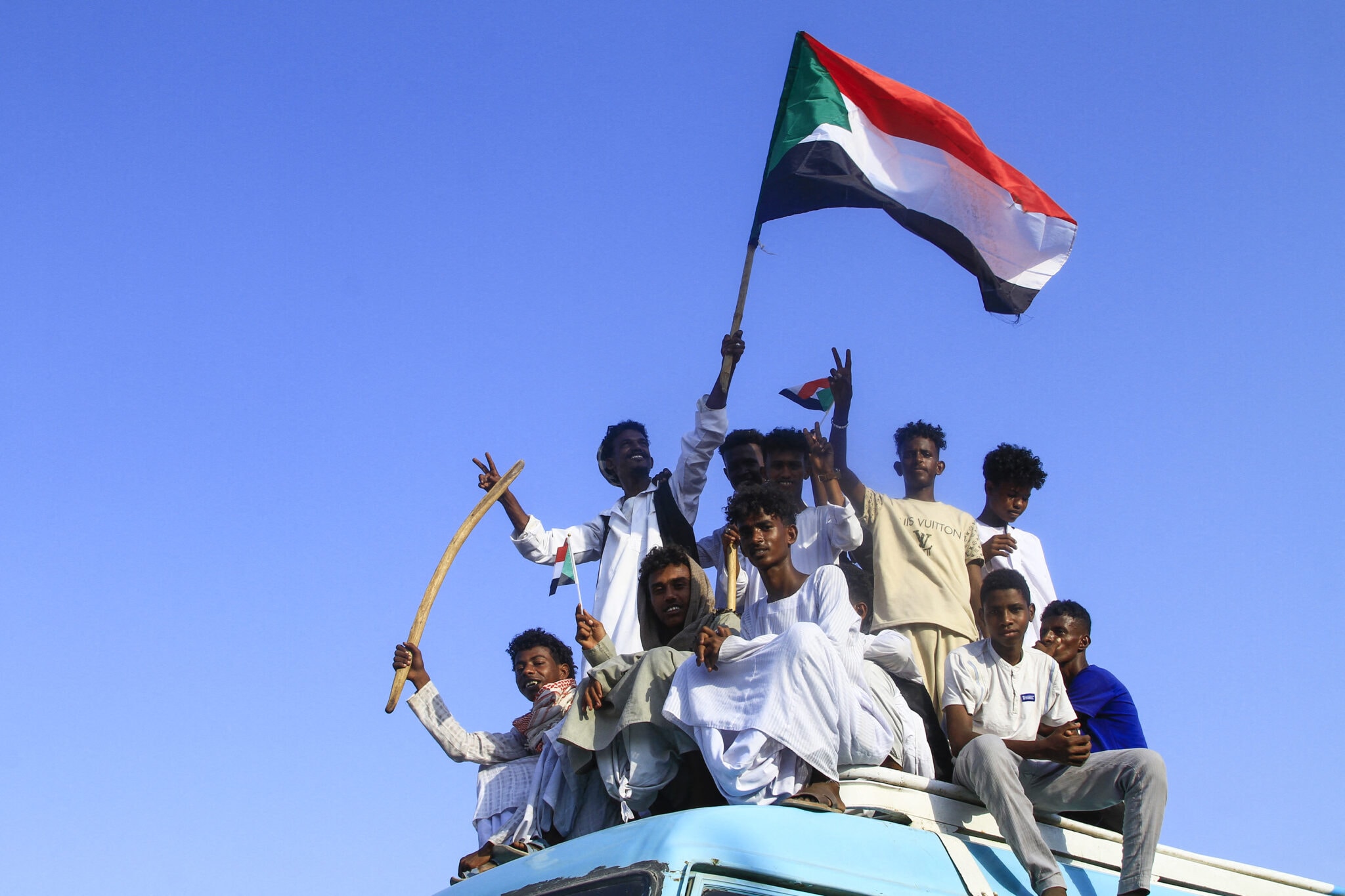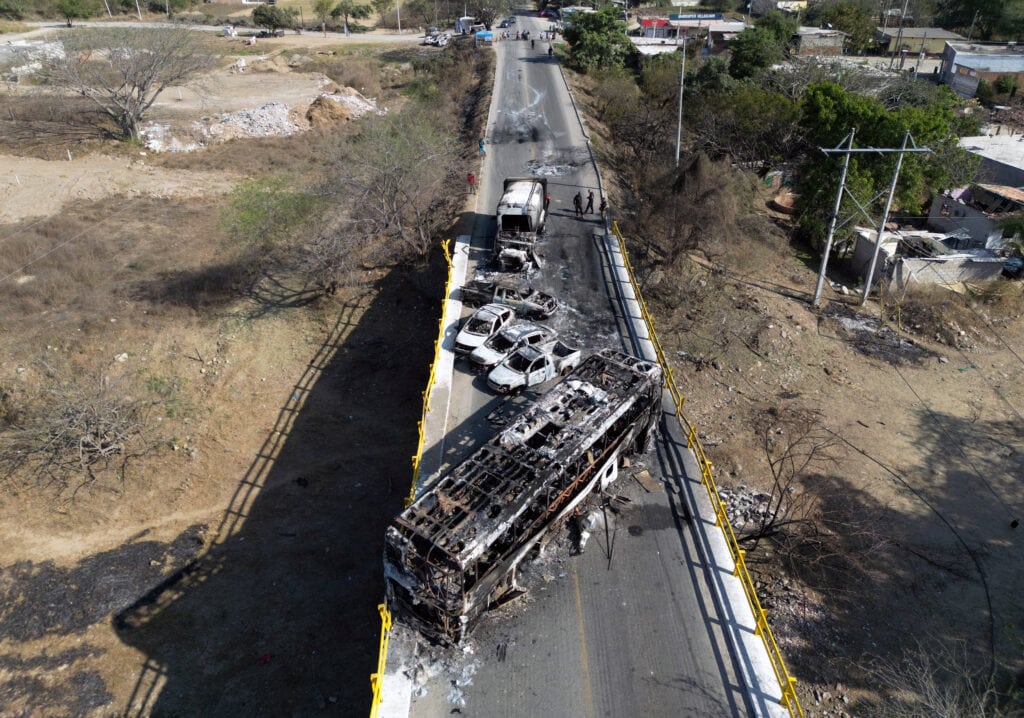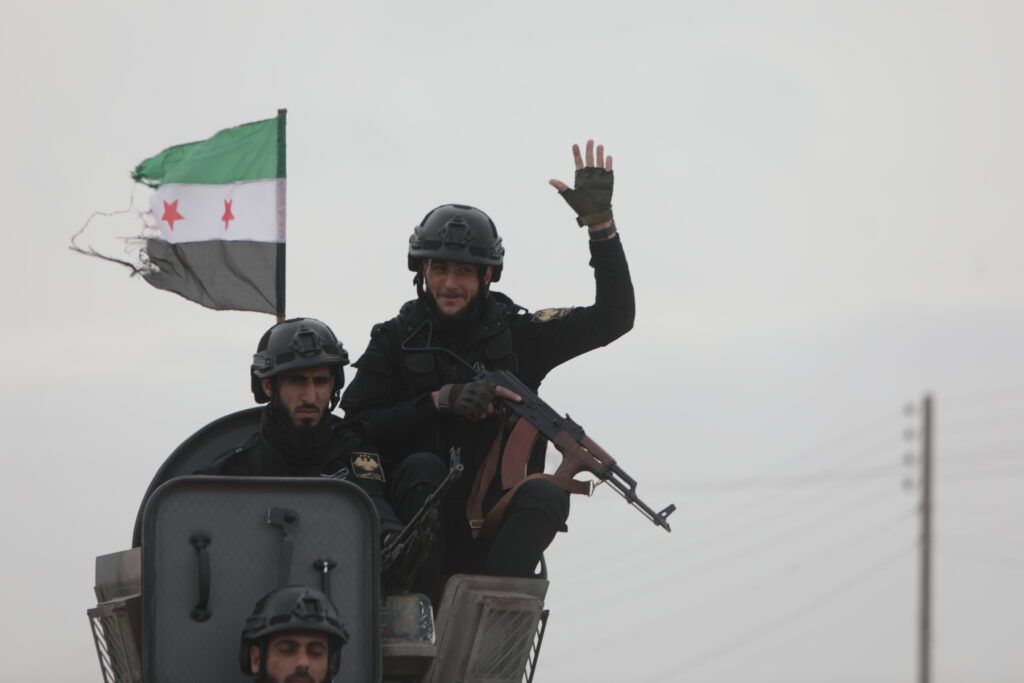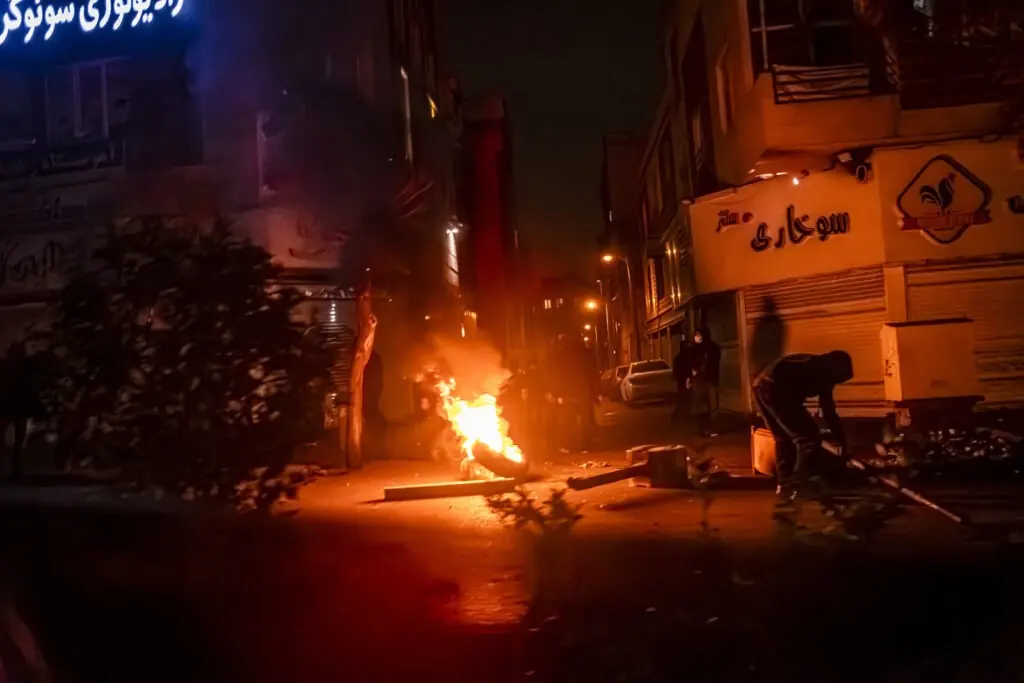
The Case for U.S. Involvement in the Sudanese Civil War
The intractable civil war in Sudan entered its third year in April as ongoing combat between the country’s two main military factions, the Rapid Support Forces (RSF) and the Sudanese Armed Forces (SAF), continues to degrade the country’s security, political, and economic sectors. The war, which has displaced millions of people and left at least 150,000 dead, has drawn the involvement of several regional powers with support flowing to combatants on both sides, helping fuel continued fighting.
Thus far, however, the United States has focused minimal attention on the conflict despite the risks it poses to its vital strategic interests on several fronts, including the rise of Islamist factions that could eventually threaten the U.S. homeland; the expansion of Russian, Chinese, and Iranian influence in the Red Sea region; further instability across Africa; and a major spillover that could create a nexus of conflict from the West African Coast to the Red Sea.
The United States could take a number of low-cost, effective steps to diminish these strategic threats, such as appointing an official envoy to Sudan, expanding diplomatic channels with the SAF and RSF, and engaging in diplomatic discussions with the United Arab Emirates to discourage UAE weapons shipments to the RSF.
The Current State of the Conflict
The Sudanese civil war erupted over disputes concerning the RSF’s integration into the Sudanese Armed Forces. SAF chief Gen. Abdel al-Burhan and Mohamed “Hemedti” Dagalo, head of the RSF, had cooperated in a 2021 coup to overthrow Sudan’s democratically elected government led by Abdalla Hamdok. In the two years that followed, tensions arose between the RSF and SAF over the level of influence in the proposed integrated military structure. The RSF strongly opposed aspects of their planned integration into the SAF. Violence on both sides rapidly escalated.
The fighting intensified in states around central and western Sudan following the SAF’s capture of the capital, Khartoum, in March. As of July, the SAF has enjoyed a minor edge in battlefield success over the RSF, yet the RSF has also secured several victories in that time. The conflict has been marked by a remarkably high use of drones and disinformation, adding to its tactical complexity.
Since its outbreak, the Sudan war has become one of the most disastrous ongoing conflicts in the world. The U.S. estimated that over 150,000 people have been killed, and the U.N. estimates that nearly 4 million refugees have fled the country, and many contend that there is an ongoing genocide in the western Sudanese region of Darfur. Furthermore, the conflict has been rife with several categories of war crimes. The SAF and RSF have perpetrated massacres, conscripted child soldiers, tortured civilians and prisoners, and arrested journalists.
The Role of External Actors
An array of factors has contributed to the war’s continuation, but external supply to the RSF and SAF and the failure by either side to engage in successful dialogue have proved especially impactful in prolonging and exacerbating the conflict. The relationship between the UAE and RSF is particularly important due to longstanding military ties and Emirati interests in Darfuri gold mines. Although the Emirati government has issued official denials, the UAE has greatly increased the force capability of the RSF by supplying it with drones, weapons, and medical support via logistics routes through Chad and South Sudan. Amnesty International confirmed that many of the bombs and howitzers the UAE has provided to the RSF were manufactured in China.
Additionally, external actors such as Iran, Russia, Egypt, and Türkiye have provided logistical, military, and political support to the SAF. Iran sent several shipments of military supplies and technology, particularly drones to the SAF, while the UAE has provided the RSF with its own drone capabilities. The use of drones has proved to be critical for both sides in the conflict, allowing them to target critical infrastructure, strike long-range targets, and attack civilian populations. Russia has also provided direct logistical, military, and intelligence support to the SAF. Russia and Iran have been leveraging this support to expand their influence over the Red Sea. Both countries are keenly interested in establishing a naval presence in Port Sudan, but as of now, the Sudanese government remains hesitant to allow this due to Western pressure. Egypt, which has historical ties with Sudan, has provided some of the most extensive external support in the form of Turkish-made drones, military consultations, and intelligence capabilities. Overall, the external support provided to both sides, driven by political or military motivations, has undoubtedly contributed to the conflict’s longevity and intensity.
The Extent of Current U.S. Involvement: Sanctions, Statements, Aid
The U.S. involvement in the war has been minimal in large part because of its general lack of focus on the African continent. The U.S. government’s most direct intervention in Sudan has come in the form of humanitarian aid and sanctions against both sides for crimes against civilians. In May, the United States sanctioned the Sudanese government for its 2024 use of chemical weapons. These sanctions include export restrictions to Sudan and sanctions against the assets and incomes of prominent SAF and RSF officials.
The conflict has been the subject of public statements from the State Department and congressional leaders. For instance, in January, then-Secretary of State Antony Blinken determined that the RSF was committing genocide in Eastern Sudan. Multiple members of Congress have also made public statements or introduced legislation in relation to the conflict as well. Furthermore, Sudan is consistently referenced in congressional testimonies as one of the main security concerns in the Horn of Africa and in Africa as a whole. While these statements underscore the concern about the conflict among high-ranking officials, the United States has only taken minor steps to mitigate the crisis.
In the past, the United States has provided significant humanitarian aid to Sudan, ranking as its largest provider of such aid with a 44% share in 2024. The aid went to programs such as the U.N. World Food Program, local community programs, and support routes. But after USAID operations were ended, numerous food assistance programs and health centers in Sudan have ceased operations, and many Sudanese have attested that these closures were a direct result of the U.S. halting international aid.
Throughout the conflict, the United States has attempted to mediate peace between the two sides twice. This was attempted through the Jeddah platform in cooperation with Saudi Arabia and peace talks in Geneva. Overall, it is clear that outside of sanctions, the United States is not focused on resolving the conflict, despite clear interest from lawmakers on the issue.
The Need for U.S. Involvement in Sudan
U.S. inaction on the war in Sudan has created two major risks with far-reaching effects: the loss of a potential strategic foothold in the Red Sea region and the risk of regional spillover from the conflict and beyond. These risks have direct impacts on American interests in the region, the rest of continental Africa, Europe, and the Middle East.
Loss of a potential strategic foothold in the region
Sudan’s geographical location could provide immense strategic value to the United States. Sudan has over 500 miles of coastline along the Red Sea, with its main access to the sea coming from Port Sudan. As the Red Sea facilitates nearly 12% of global maritime trade, access to that body would potentially give an actor immediate economic, political, and military influence over the broader Middle East and global trade.
U.S. inattention to the conflict has left a vacuum that others can exploit. Most notably, Russia, China, and Iran have attempted to establish a presence in Port Sudan. China has invested heavily in infrastructure and “expressed interest” in the creation of a their own presence in Port Sudan. Russia has put even more effort into establishing a military base there. In February, Sudanese Foreign Minister Ali Youssef stated there were no obstacles to the establishment of a Russian naval base in Port Sudan, worrying many Western officials. Under the deal, Russia could establish a naval base with 300 personnel plus warships and potentially submarines stationed there that would give Russia the ability to project power in the region, counter Western interests, threaten global maritime trade routes, and even threaten NATO’s southern flank. However, the deal would require approval by an elected Sudanese parliament, which does not currently exist.
Iran has also expressed a deep interest in establishing its own naval presence in Port Sudan, supplying arms to the SAF in an attempt to bolster its ambitions there . Iran looks to exert more influence in a region already complicated by repeated Houthi strikes on Western vessels. There is a risk that the SAF may offer port access to Iran in time, as SAF security needs dictate the need for urgent arms imports from external actors. If Iran were to gain access to a naval base in Port Sudan or have even a small presence in the Red Sea, threats to western vessels and global maritime trade routes would exponentially increase. With a naval presence in Port Sudan, the Iranian regime would be able to disrupt global maritime trade in the Red Sea, threaten Saudi Arabia and Israel, and provide an additional threat to Western naval assets in the region beyond their al-Houthi proxy. The vacuum left by a lack of American intervention in Sudan’s conflict would allow these U.S. adversaries to capitalize on a Red Sea presence and threaten Western interests.
The risk of regional spillover
The risk of a regional spillover of the conflict presents another strong motivation for U.S. involvement. The greater Horn of Africa region has become a hotbed for instability within and among multiple countries, and its destabilization would lead to more illicit trade and the spread of insurgent groups while with global trade. Besides Sudan, four regional countries are experiencing destabilizing unrest or outright conflict. Somalia is fighting a substantial insurgency from al-Shabaab amid divisions among federal states. South Sudan is in a political crisis and on the brink of civil war. Ethiopia is fighting a civil war with Fano militias, and deadly political unrest has gripped Kenya. Outside of the that region, Libya and the Central African Republic, both of which border Sudan, are also experiencing active internal conflicts.
The risk of spillover of the Sudanese war into its neighbors is immense, with the potential to exacerbate conflicts in already fragile countries. As of April 2025, over 3.9 million Sudanese refugees have fled to neighboring countries: 1.1 million to South Sudan; 775,000 to Chad; 256,000 to Libya; 72,000 to Ethiopia; and 42,000 to the Central African Republic. The influx of refugees has greatly strained those countries’ public service capacities, increased the spread of disease, and overwhelmed refugee camps.
Furthermore, the Sudanese conflict is directly increasing insecurity among its neighbors, particularly Chad, Libya, and South Sudan. For instance, Chad has become a transit hub for illicit weapons shipments and military aid to the RSF. In eastern Libya, warlord Khalifa Haftar’s Libyan National Army had been accused of directly supporting the RSF with military aid and support near the shared border of Sudan, Egypt, and Libya. Some prominent South Sudanese militias have aligned with the RSF, increasing the availability of illicit smuggling routes and operational theaters.
The war in Sudan has serious ramifications on its neighbors and the greater Horn. The Sudanese conflict will only exacerbate regional instability if no action is taken. Additionally, in the absence of U.S. involvement, Sudan’s continued deterioration would further exacerbate the migrant crisis facing America and Europe. The war and its ramifications on the continent directly affect U.S. political and security interests.
The United States can maintain its reputation as a peacemaker
Trump, who wants to be perceived as a peacemaker, and his administration have made clear their priority to end global conflicts. The White House’s actions and engagements with Ukraine, Iran, and even Rwanda exemplify his vested interest in this goal. These mediations reiterate U.S. soft-power capabilities and demonstrate the depth of American influence, critical to countering rising Chinese influence. The United States’ reputation as a peacemaker is critical to its soft power capabilities.
The United States and Trump would both benefit from showing attention to the Sudanese war. The U.S. would benefit from a bolstered reputation as a peacemaker, a perception vital to its strategic interests, while expanding its soft-power capabilities and retaining credibility on the world stage. The Rwanda-DRC peace deal brokered by the Trump administration, for instance, ended a three-year conflict while promoting economic cooperation with the United States. On a strategic level, the agreement reiterated the country’s ability to end conflicts through soft power and displayed the depth of U.S. influence, especially at a time when many questioned it. Involvement like this in Sudan may offer another opportunity for the United States to show its place as primary arbiter of peace, and successful involvement would bolster credibility in mediating future conflicts. In turn, boosted credibility would allow the United States to take a primary role at the mediation table, where it can broker peace and secure gains for U.S. interests from any respective conflict.
Trump is taking a unique interest in Africa compared to prior administrations, through summits and peace deals with several different countries. Secretary of State Marco Rubio has said Sudan was the next U.S. priority for mediation on the continent. In the event of successful intervention in Sudan, the administration can pivot to other regional and continental issues. By exercising low-cost intervention tactics, such as peace talks or mediation, in Sudan, the United States demonstrates its role as a peacemaker, gains credibility as a reliable partner/negotiator, and provides a step toward peace in the region.
Options for U.S. Involvement in the Sudanese Civil War
Appoint a Presidential Envoy to Sudan – The United States has not appointed a Special Envoy to Sudan since Tom Perriello resigned before Trump took office. A special envoy offers the United States the first real step in intervening by having an official representative of the government focused on the conflict. Although the position requires Senate approval, several senators have expressed interest in having an official channel for U.S. engagement in the conflict. Furthermore, Malik Agar, vice president of the internationally recognized government of Sudan, has stressed the desire of the Sudanese people to be heard by the United States. Appointing an envoy would be a simple but effective way to win support from the Sudanese public.
Expand communication with external actors – The United States must continue its diplomatic outreach to external actors involved in the conflict. A major factor in the continuation of the conflict has been external actor support to the RSF and SAF. U.S. Deputy Secretary of State Christopher Landau and Trump’s Senior Advisor for Africa Massad Boulos hosted Saudi Arabia, the UAE, and Egypt on June 3 to discuss the ongoing crisis in Sudan. A major source of disagreement among mediators like the United States and Egypt and the warring parties has come from the question of the inclusion of the RSF and SAF in peace talks. The United States should strongly consider involving the two sides, or at least the SAF, in any ceasefire discussions. Coordination with these major internal and external actors is the first step in reducing external involvement and thus mitigating the conflict. The U.S. can build on conferences such as this one to find a lasting agreement between the external actors, but it requires a persistent effort in diplomatic outreach, whether through such conferences or with simple direct communication with senior officials.
Exert pressure against the UAE – The United States can apply diplomatic and public pressure against the UAE for its support of the RSF. The UAE’s military and financial support has been at the core of the RSF’s operational capabilities, which it has used to commit mass atrocities. Additionally, several members of the U.S. Congress have voiced concern about the UAE’s support to the RSF. The U.S. government can publicly threaten to withhold arms sales to the UAE, which is heavily reliant on U.S. arms exports. This gives the U.S. leverage to deter the UAE from its support. The U.S. can also call public attention to the role of the UAE in the conflict through public statements by the State Department, sanctions by the Treasury Department, or congressional resolutions condemning its actions. These steps represent an effective strategy for deterring UAE support to the RSF that also has congressional support.
The views expressed in this article are those of the author and not an official policy or position of New Lines Institute.




